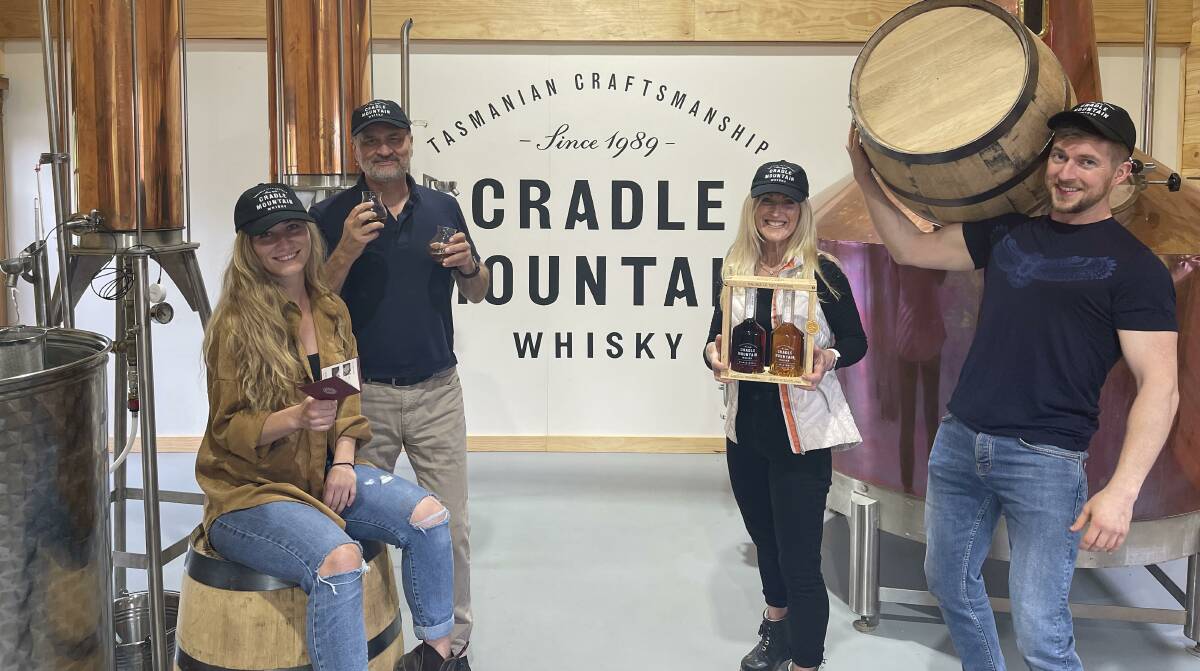
It's potentially a once-in-a-lifetime opportunity for Tasmanian whisky aficionados: two 21-year-old single malts distilled identically, but aged on other sides of the world.
Subscribe now for unlimited access.
$0/
(min cost $0)
or signup to continue reading
That's what Cradle Mountain Whisky has brought together for a few dedicated fans in its latest offering.
The bottles' two-decade journey began in the early 1990s, when Cradle Mountain Whisky director Andrew Morrison took a trip from Tasmania to the spiritual home of single malt, Scotland.
Hoping to impress the Scots with his whisky, Mr Morrison took a bottle of his creation to an independent bottler in Campbell Town.
According to Cradle Mountain Whisky head distiller Joe Lahra, Mr Morrison's bold move paid off.
"He told the guys down in the distillery that he's got a distillery in Tasmania, and they kind of laughed at him a little bit but they said, 'Come on up, and we'll go and introduce you to the boss'," he said.
"The boss took a swig out of the bottle and ordered seven barrels on the spot."
This was a major boom for a small distiller carving a way through the early years of Tasmanian whisky.
The barrels were shipped off and dolled out over time at various key ageing points until recently when Cradle Mountain brought some back and paired them with their Tasmanian-aged equivalents.

What has resulted is a potentially unique endeavour in whisky circles.
Only 21 double-bottle sets will be available for purchase, meaning hopeful whisky lovers will need to enter a ballot to even be able to buy one. Those lucky few selected from the ballot can then purchase a two-bottle set for $1200.
Despite being produced practically identically, the whiskies certainly look and taste distinctly different, due to subtle changes in the ageing environment.
"The weather in Scotland is very, very different to what it is in Tasmania. We've got a lot more variability in temperature in Tasmania, whereas in Scotland, it's much more temperate and also a lot more humid," Mr Lahra said.
"Because of that, the whisky matures very differently. In Tasmania, you get a much more accelerated ageing process and more of what's called Angel's Share."
The Angel's Share as it is known among distillers is the portion that is lost through evaporation when whisky is aged in barrels - with temperature being the chief driving force.
While this reduces the amount of whisky available it also helps round off and develop the more complex flavours associated with aged single malts.
This process is how two identical batches kept in different climates can age so radically different.
In fact, Angel's Share losses in Tasmania can be as high as 70 per cent over the full term of the ageing - compared to around 40 per cent in Scotland.
What results, according to Cradle Mountain, are two whiskies that "present entirely different in terms of colour, nose, and taste".
Those hoping to get their hands on a pair can register for the ballot at cradlemountainwhisky.com.
"We scoured around to see if anyone's done anything like this before, and we think the answer is no - and certainly not between Tasmania and Scotland," Mr Lahra said.
Our journalists work hard to provide local, up-to-date news to the community. This is how you can continue to access our trusted content:
- Bookmark www.examiner.com.au
- Make sure you are signed up for our breaking and regular headlines newsletters
- Follow us on Twitter: @examineronline
- Follow us on Instagram: @examineronline
Follow us on Google News: The Examiner



